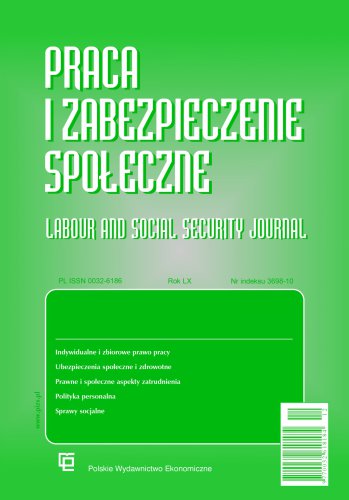In order to counteract the spread of the COVID-19 epidemic, pursuant to the Act of March 2, 2020, the possibility of sending an employee to work remotely was introduced by employer's official order. However, the concept of remote work has not been defined by the legislator, nor is it defined in the applicable labour law. This causes difficulties in distinguishing between remote work and telework as referred to in art. 675 of the Polish Labour Code. The issue of the range and form of admissible employees' control also remains controversial. As stated by the legislator, within the meaning of the COVID-19 Act, remote work means work rendered outside the place of its permanent performance. This includes also the possibility to provide work from the employee's home, so called "home office". Determining the limits of the employer's permitted control seems to be particularly problematic, while taking into account the obligation to respect the employee's right to privacy and the privay of the household members, as well as the employer's need to apply the principles of personal data protection regulated in the GDPR. In addition, the need to distinguish the concepts of remote work from telework, makes it necessary to dispute whether there is an obligation for the parties of the employment relationship to regulate in the order of the employer or in an agreement concluded with the employee the circumstances in which the remote work has to be concluded, as well as the possibility of applying warranty provisions regarding the specifics of providing work using means electronic communications as regulated in chapter IIb of the Labour Code.
Keywords: remote work; telework; control of the employees; privacy; GDPR

